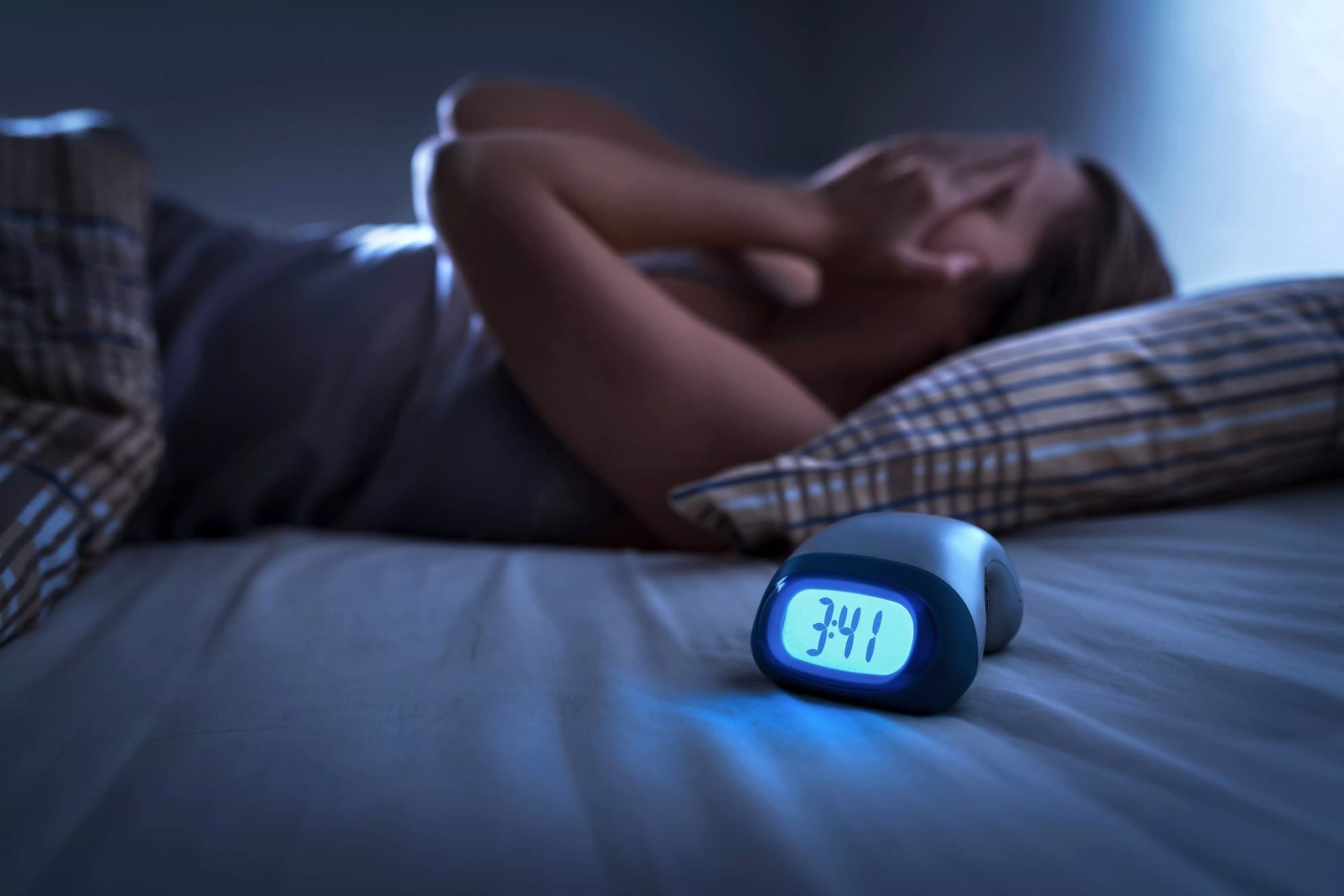Understanding Insomnia and Its Underlying Causes

Tossing and turning throughout the night has become your new normal. No matter how hard you try to improve your sleep schedule or how exhausted you are from your day, it’s almost as if you become recharged as soon as your head hits the pillow.
Instead of counting sheep and drifting off into a peaceful sleep, your mind starts wandering to situations that you feel like you have to handle at that moment, no matter what time it is.
Insomnia is no joke. It can make it extremely difficult to fall asleep and stay asleep throughout the night, no matter how hard you try to implement changes to make it easier for that to happen.
Let’s learn more about insomnia and some of its underlying causes.
What Is Insomnia?
 Insomnia is a sleep disorder that can make it difficult for individuals to fall asleep and stay asleep throughout the night. It can also cause some people to wake up too early and not be able to fall back asleep. Individuals who suffer from this condition often wake up feeling tired or exhausted. If this condition is left untreated, it can start to negatively impact your energy levels, mood, health, career, and personal life.
Insomnia is a sleep disorder that can make it difficult for individuals to fall asleep and stay asleep throughout the night. It can also cause some people to wake up too early and not be able to fall back asleep. Individuals who suffer from this condition often wake up feeling tired or exhausted. If this condition is left untreated, it can start to negatively impact your energy levels, mood, health, career, and personal life.
The Causes
Let’s learn more about some of the most common causes of insomnia.
Stress
Insomnia is most commonly associated with stress. Life is full of ups and downs. You never know what’s actually going to take place during a day, no matter how hard you try to plan ahead. There are a lot of extremely important things that you put a lot of time and energy into. Your family, friends, health, career, education, and finances are all things that can bring added stress into your life.
Medication
It’s important to be aware of the side effects of some medications you may be taking. There are a lot of prescriptions out there that can get in the way of your sleep schedule. Some medications include stimulants that could cause sleep disruption as well.
Sleeping Habits
Your sleeping habits can play a big role in whether you’re likely to develop insomnia. Going to bed and waking up at sporadic times can make it difficult for your body and brain to adjust to a schedule.
Being too active before bed can also make your energy levels spike, which can make it difficult to relax or unwind before falling asleep. Taking in too many screens like watching TV, working on your laptop, or scrolling on your phone can emit a blue light that mimics sunlight, tricking your body and brain into believing it’s not nighttime.
Substances
Be mindful of what you put into your body. Certain foods or substances like alcohol, caffeine, and nicotine can prevent you from falling asleep at night. Coffee, tea, soda, and other sugary drinks and snacks may give you an energy boost, so it’s important to consider the time of day that you’re consuming these items. Alcohol may make you sleepy, but it can cause you to wake up in the middle of the night and prevent you from getting the quality sleep that you need.
Schedule and Routine
Your work or travel schedule could be causing disruptions in your circadian rhythm. This is your body’s internal clock that helps prepare your body for sleep at night as well as when it’s time to wake up in the morning. Disruptions in your normal schedule and routine can cause you to experience insomnia.
Next Steps
Sleep is essential for your body and brain to perform to the best of their ability. If you or a loved one struggles with insomnia, you’re not alone. Reach out to us today to learn more about how insomnia therapy can help you better manage these signs and symptoms and get your sleep schedule back on track again.
